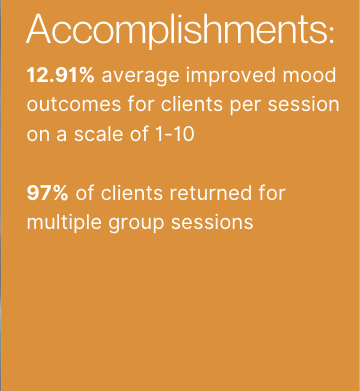Contact Information | Cognitive Behavioral Interventions (CBI)

What We Do
The Cognitive Behavioral Interventions program at LINC, Inc. offers a variety of group sessions to empower justice-involved individuals in making healthy decisions for positive return from incarceration, social interaction, employment potential, and long-term sustained success in reentry.
CBI began in November 2023 with funding from New Hanover County, and was designed to support individuals struggling with opioid misuse disorder. The goal of the program is to decrease participants’ risk of returning to incarceration.
Group sessions provide resources for restructuring how participants process and think through challenges and their own reactions to external triggers.
The schedule of CBI sessions varies from day-to-day and month-to-month, depending upon the number of participants. Sessions generally last from 1 to 1.5 hours. There is no minimum or maximum number of participants. Sessions are conducted in person or online via Zoom or Google Meeting.
Who is Eligible for Cognitive Behavioral Interventions Programs
- New Hanover County residents
- Justice-involved individuals
- Age 18+
- Special groups/programs may be accommodated upon request
How to Apply
There is no formal application required to participate in the CBI program. Interested individuals should contact the facilitator by phone or email for the current days and times of sessions.
At a Glance | Fiscal Year ending June 30 2024



- 71 total clients served last quarter, 105 total clients served as of 4/23/2024
- 66.2% Male, 33.8% Female
- 30.3% Caucasian, 63.6% African American, 6% Bi/Multi-Racial.
- Clients served ranged in age from 18-67, with the most individuals in the 38-47 years old age range.
- An average of about 17 new clients joined the groups each month
- Only 5.6% of clients were Veterans
- 76.2% of clients had histories of Substance Use Disorders.
- 38% of clients had histories of Opioid Use Disorder with that being their primary diagnosis
- 76.3% of clients had histories of Mental Health diagnoses
- On average, clients attended about 4 sessions each last quarter
